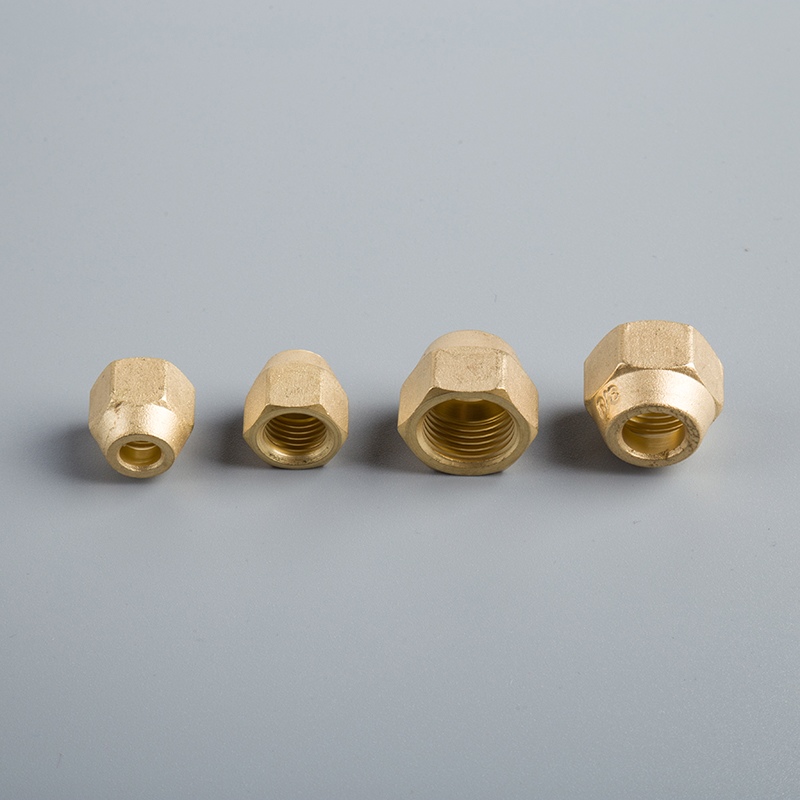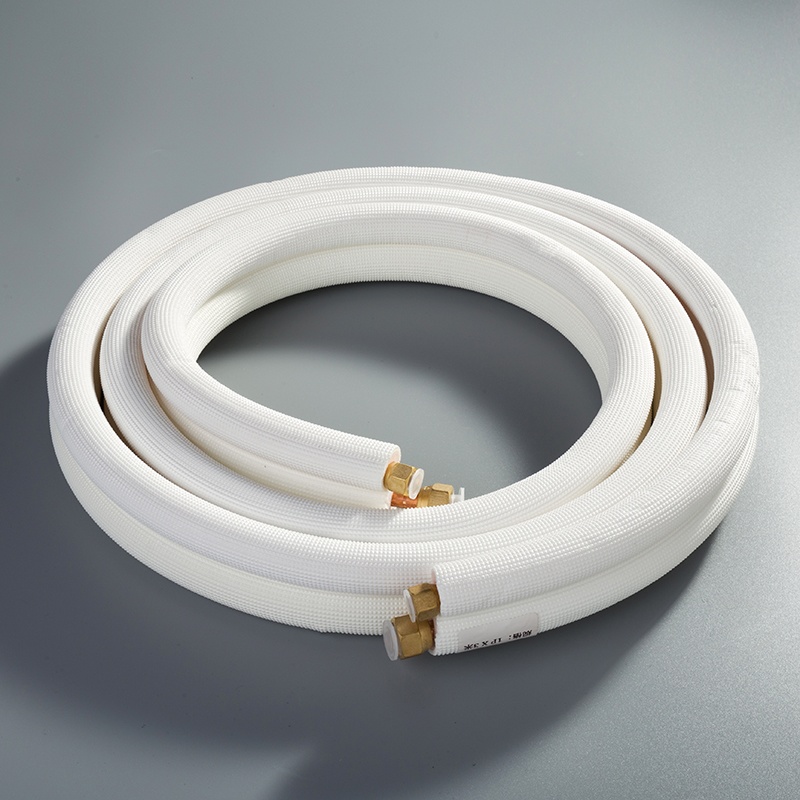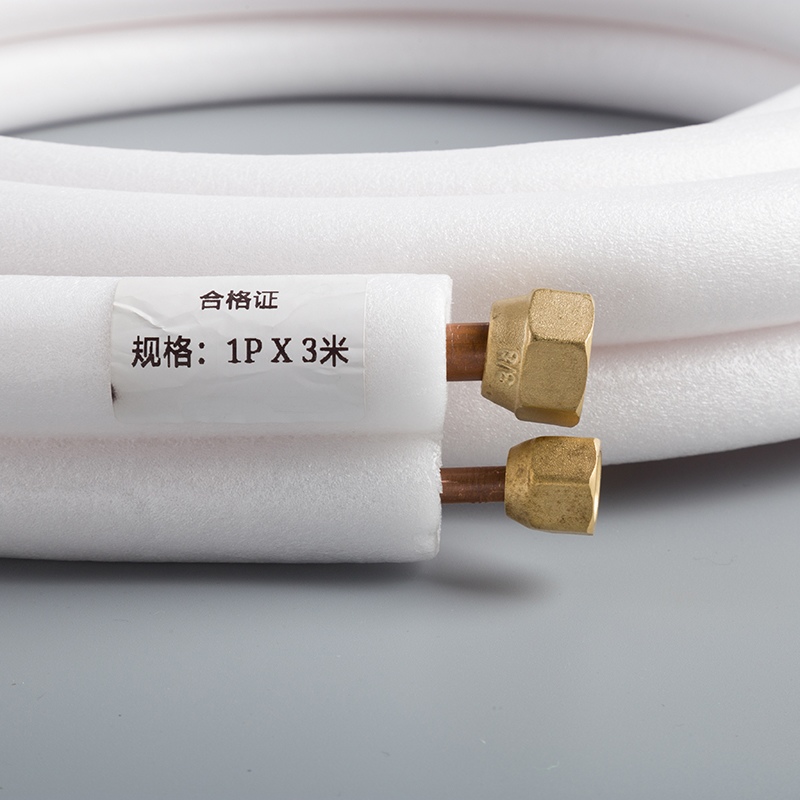Why Do Air Conditioner Copper Pipes Heat Up?

Have you ever wondered why your air conditioner copper pipe is hot? This heating occurs due to the refrigerant cycle and heat transfer processes. Copper pipes are crucial in your air conditioning system as they transport refrigerant, facilitate heat exchange, and ensure efficient thermal conductivity. Their smooth inner surface minimizes friction, reducing energy loss. Copper's durability and reliability make it a preferred choice in HVAC systems. Understanding why these pipes heat up can help you maintain system efficiency and prevent potential issues. Additionally, considering the air conditioner copper pipe insulation price can be beneficial in enhancing system performance and avoiding costly repairs, ensuring your comfort.
The Role of Copper Pipes in Air Conditioning Systems

Function of Copper Pipes
Copper pipes play a vital role in your air conditioning system. They transport refrigerant, which is essential for cooling your home. As the refrigerant moves through these pipes, it absorbs heat from the indoor air and releases it outside. This process is what makes your air conditioner effective in maintaining a comfortable indoor temperature.
Copper pipes ensure a smooth flow of refrigerant, minimizing friction and reducing energy loss. This efficiency helps lower operational costs and contributes to the overall energy efficiency of your air conditioning system. When you notice that your air conditioner copper pipe is hot, it's a sign that the system is working to transfer heat effectively.
Advantages of Using Copper
Why is copper the material of choice for air conditioning systems? There are several reasons:
Durability: Copper pipes are known for their toughness and ability to withstand high pressure and temperature. This makes them reliable for long-term use in HVAC systems.
Anti-Corrosive Properties: Copper's resistance to corrosion ensures a longer service life. You won't have to worry about pipe rupture or air leakage, which can be costly to repair.
Heat Conductivity: Copper is an excellent conductor of heat. This property is crucial for efficient heat exchange, allowing your air conditioner to cool your home effectively.
Deformability: Copper pipes can be easily shaped and bent without breaking. This flexibility makes installation easier and more adaptable to different system designs.
Considering the air conditioner copper pipe insulation price is also important. Proper insulation helps maintain the efficiency of copper pipes by preventing heat loss and protecting against moisture and corrosion. Regular maintenance and inspections can further enhance the performance and reliability of your air conditioning system.
The Physics of Heat Transfer in AC Systems
Understanding the physics behind heat transfer in air conditioning systems can help you grasp why those copper pipes heat up. Let's dive into the basics of the refrigerant cycle and the mechanisms of heat transfer.
Refrigerant Cycle Overview
The refrigerant cycle is the heart of your air conditioning system. It involves a continuous loop where the refrigerant absorbs heat from inside your home and releases it outside. Here's how it works:
Evaporation: The refrigerant enters the evaporator coil inside your home as a low-pressure liquid. It absorbs heat from the indoor air, turning into a gas. This process cools the air, which is then circulated back into your living space.
Compression: The gaseous refrigerant moves to the compressor, where it's compressed into a high-pressure gas. This step increases the refrigerant's temperature, preparing it for the next phase.
Condensation: The hot, high-pressure gas travels to the condenser coil outside. Here, it releases the absorbed heat into the outdoor air and condenses back into a liquid.
Expansion: The liquid refrigerant passes through an expansion valve, dropping in pressure and temperature. It's now ready to re-enter the evaporator coil and repeat the cycle.
This cycle is crucial for maintaining a comfortable indoor environment. When you notice your air conditioner copper pipe is hot, it's a sign that the refrigerant is effectively transferring heat.
Heat Transfer Mechanisms
Heat transfer in air conditioning systems relies on three primary mechanisms: conduction, convection, and radiation. Each plays a role in how your system operates:
Conduction: This is the transfer of heat through direct contact. In your AC system, copper pipes conduct heat efficiently due to their excellent thermal conductivity. This property allows the refrigerant to absorb and release heat quickly.
Convection: This involves the movement of heat through fluids or gases. In your air conditioner, fans circulate air over the evaporator and condenser coils, enhancing heat exchange. This process ensures that the refrigerant can absorb and release heat effectively.
Radiation: Although less significant in AC systems, radiation involves heat transfer through electromagnetic waves. It plays a minor role compared to conduction and convection.
A study on heat transfer calculation models highlights the importance of understanding these mechanisms for efficient air conditioning. By grasping these concepts, you can better appreciate the role of copper pipes in your system's performance.
Common Reasons for Excessive Heating

Understanding why your air conditioner's copper pipes might heat up more than usual can help you address potential issues before they become serious. Let's explore some common reasons for this excessive heating.
Low Refrigerant Levels
One of the primary culprits behind overheated copper pipes is low refrigerant levels. When the refrigerant level drops, the system struggles to absorb and release heat efficiently. This inefficiency causes the copper pipes to heat up more than they should. You might notice that your air conditioner isn't cooling as effectively, which can be a sign of low refrigerant.
To keep your system running smoothly, it's crucial to maintain the right refrigerant levels. Regular checks can help you catch any leaks early, preventing further damage and ensuring your air conditioner operates at peak efficiency.
Poor Insulation
Another factor that can lead to excessive heating is poor insulation. Copper pipes are excellent conductors of heat, which is why they're used in air conditioning systems. However, without proper insulation, these pipes can lose heat to the surrounding environment. This loss not only makes the pipes hotter but also reduces the overall efficiency of your air conditioner.
Investing in quality insulation for your copper pipes can make a significant difference. It helps retain the heat within the pipes, enhancing the energy efficiency of your system. Plus, well-insulated pipes reduce power consumption, saving you money on energy bills.
By addressing these common issues, you can ensure that your air conditioner's copper pipes remain at an optimal temperature, contributing to a more efficient and reliable cooling system.
Implications of Overheated Copper Pipes
When your air conditioner copper pipe is hot, it can lead to several implications that affect both the efficiency and longevity of your system. Let's explore these impacts in more detail.
System Efficiency
Overheated copper pipes can significantly impact the efficiency of your air conditioning system. Copper pipes are designed to minimize friction and reduce energy loss. This efficiency is crucial for keeping your energy bills low and ensuring that your air conditioner operates smoothly. When the pipes overheat, they may not conduct heat as effectively, leading to increased energy consumption.
You might notice that your air conditioner struggles to maintain a consistent temperature, which can be frustrating during hot weather. By addressing the issue of overheated pipes, you can help your system run more efficiently and save on energy costs. Regular maintenance and considering the air conditioner copper pipe insulation price can enhance the performance of your system.
Potential Damage
Beyond efficiency, overheated copper pipes can also cause potential damage to your air conditioning system. Copper's anti-corrosion properties usually ensure reliability and a longer service life. However, excessive heat can stress the pipes, leading to problems like pipe rupture or air leakage. These issues can result in costly repairs and even system failure if not addressed promptly.
To prevent such damage, it's essential to monitor your system regularly and address any signs of overheating. Investing in proper insulation can protect the pipes from external temperature fluctuations, reducing the risk of damage. By taking these preventive measures, you can extend the lifespan of your air conditioner and avoid unexpected repair costs.
Addressing Heating Issues
When your air conditioner copper pipe is hot, addressing the issue promptly can prevent further complications. Here are some practical steps you can take to tackle heating problems effectively.
Regular maintenance
Regular maintenance is crucial for keeping your air conditioning system in top shape. By scheduling routine check-ups, you can catch potential issues before they escalate. During these inspections, a professional can assess the refrigerant levels, check for leaks, and ensure that all components function correctly. This proactive approach helps maintain the efficiency of your system and prevents the copper pipes from overheating.
Expert Testimony: According to an HVAC Technician, "Understanding AC problems, implementing expert repair tricks, and following preventative maintenance tips are key to keeping your cooling system in optimal condition."
You can handle some maintenance tasks yourself, like cleaning or replacing air filters. However, for more complex issues, it's wise to call in the experts. Trusting reputable professionals ensures quality service and peace of mind, keeping your home cool and comfortable throughout the year.
Insulation improvements
Improving insulation around your copper pipes can significantly reduce heat loss and enhance system efficiency. Proper insulation keeps the heat within the pipes, preventing them from overheating and reducing energy consumption. When considering insulation, it's essential to weigh the air conditioner copper pipe insulation price against the long-term savings on energy bills.
Investing in high-quality insulation materials can make a noticeable difference. Not only does it protect the pipes from external temperature fluctuations, but it also minimizes the risk of damage due to overheating. By enhancing insulation, you contribute to a more efficient and reliable cooling system.
Expert Testimony: Clarksville Heating & Air emphasizes that "Addressing common issues can help you extend the lifespan of your air conditioning unit."
By focusing on regular maintenance and insulation improvements, you can ensure that your air conditioning system operates efficiently. These steps help maintain optimal pipe temperature, contributing to a comfortable indoor environment and potentially saving you money in the long run.
Practical Tips for Maintaining Optimal Pipe Temperature
Keeping your air conditioner's copper pipes at the right temperature ensures your system runs smoothly. Here are some practical tips to help you maintain optimal pipe temperature.
Monitoring System Performance
Regularly checking your air conditioning system's performance is crucial. You can start by observing how well your AC cools your home. If you notice any changes, like the air not being as cold as it used to be, it might be time to take a closer look.
Check the Thermostat: Make sure your thermostat is set correctly and functioning properly. A faulty thermostat can lead to inefficient cooling and overheated pipes.
Listen for Unusual Noises: Strange sounds from your AC unit can indicate issues with the refrigerant cycle or other components. Addressing these noises early can prevent further problems.
Inspect the Copper Pipes: Feel the pipes to see if they're hotter than usual. This can be a sign of low refrigerant levels or poor insulation.
Tip: Regular monitoring helps you catch potential issues before they become serious problems. This proactive approach can save you time and money in the long run.
Preventive Measures
Taking preventive measures can help you avoid overheating issues and keep your air conditioning system running efficiently.
Schedule Regular Maintenance: Regular maintenance by a professional can keep your system in top shape. They can check refrigerant levels, inspect for leaks, and ensure all components work correctly.
Improve Insulation: Investing in quality insulation for your copper pipes can prevent heat loss and reduce energy consumption. This step enhances the efficiency of your system and protects the pipes from external temperature fluctuations.
Clean or Replace Air Filters: Dirty filters can restrict airflow, causing your system to work harder and potentially overheat. Regularly cleaning or replacing filters can improve airflow and efficiency.
Expert Insight: According to HVAC Technicians, assessing various skills and competencies during maintenance can ensure your system operates optimally. This includes technical skills, customer service skills, and technology competence.
By following these tips, you can maintain optimal pipe temperature and ensure your air conditioning system runs efficiently. Regular monitoring and preventive measures contribute to a comfortable indoor environment and help you avoid unexpected repair costs.
Understanding why copper pipes heat up in air conditioners is crucial for maintaining your system's efficiency. By grasping the reasons behind this heating, you can take proactive steps to prevent excessive temperatures. Regular maintenance and inspections play a vital role in keeping your AC running smoothly.
Key Maintenance Tips:
Monitor refrigerant levels.
Improve insulation.
Schedule professional servicing.
Remember: Addressing common issues early can extend your air conditioner's lifespan. Trusting reputable experts ensures quality service and peace of mind, keeping your home cool and comfortable.
See Also
The Benefits of Using Copper Pipes in AC Systems
The Importance of Pure Copper Pipes in AC Efficiency
Essential Reasons Copper Pipes Transform Air Conditioning


